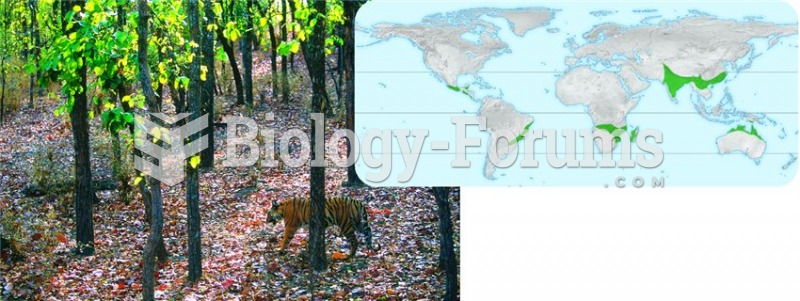This topic contains a solution. Click here to go to the answer
|
|
|
Did you know?
Signs and symptoms of a drug overdose include losing consciousness, fever or sweating, breathing problems, abnormal pulse, and changes in skin color.
Did you know?
Medication errors are three times higher among children and infants than with adults.
Did you know?
The U.S. Pharmacopeia Medication Errors Reporting Program states that approximately 50% of all medication errors involve insulin.
Did you know?
Warfarin was developed as a consequence of the study of a strange bleeding disorder that suddenly occurred in cattle on the northern prairies of the United States in the early 1900s.
Did you know?
The human body produces and destroys 15 million blood cells every second.
 Large regions of the Boreal forest in Alberta have been divided into a grid due to industrial develo
Large regions of the Boreal forest in Alberta have been divided into a grid due to industrial develo
 Creede, Colorado, circa 1890, a rough silver mining town that grew from 660 people in 1889 to over 1
Creede, Colorado, circa 1890, a rough silver mining town that grew from 660 people in 1889 to over 1





